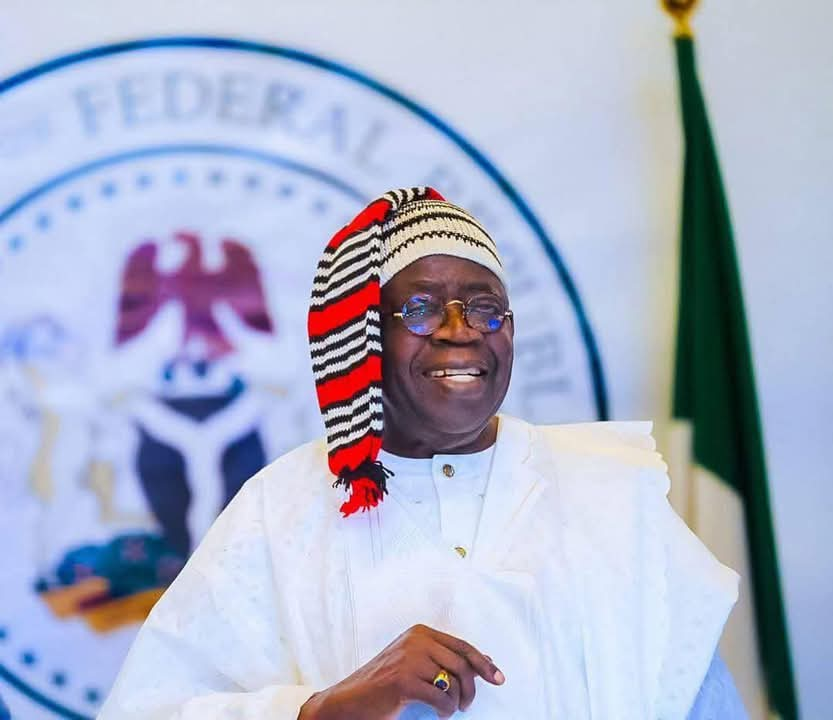Headline
Tinubu abolishes 5% telecom tax, offers relief to millions of Nigerians

Millions of telecom subscribers across Nigeria have received welcome news as President Bola Ahmed Tinubu has officially scrapped the planned 5% excise duty on telecommunications services.
The levy, introduced under the 2020 Finance Act, had long faced backlash from industry stakeholders and consumers, who argued that it would worsen the already high cost of living and stifle access to communication services.
Speaking in Abuja on Tuesday, the Executive Vice-Chairman of the Nigerian Communications Commission (NCC), Dr. Aminu Maida, confirmed that the excise duty which had previously been suspended has now been completely abolished.
READ ALSO: Tinubu slashes dialysis costs in federal hospitals
“The excise duty, it was the five per cent or so, that is no longer there,” Maida told journalists. “Before it was suspended, but now the President has been magnanimous to remove it entirely.”
The controversial levy, introduced under the Muhammadu Buhari administration, was intended to boost government revenue but was widely criticised by consumer groups and industry stakeholders. Opponents argued that it would not only increase the cost of calls and data but also worsen the financial strain on households already grappling with inflation and high living costs.
In July 2023, Tinubu issued an executive order suspending the duty, citing concerns over its impact on both businesses and ordinary Nigerians. This latest move marks a definitive end to the policy.
Reacting to the announcement, the President of the National Association of Telecom Subscribers of Nigeria (NATCOMs), Chief Deolu Ogunbanjo, described the development as “soothing news.”
According to him, the removal means there will be “price stabilisation” and prevents further tariff hikes by operators, who had already been granted a 50 per cent increase in January 2025.
“If the Federal Government had allowed the five per cent, it means there would have been another round of tariff hikes on data and calls soon,” Ogunbanjo said.
“The NATCOMs executives will now finalise plans to withdraw our case from the Federal High Court, Ikoyi, because this is a good one for the over 170 million active subscribers in the country.”
Ogunbanjo, however, urged the NCC to review the January hike downward from 50% to 35%, which had been the original agreement with stakeholders earlier in the year.
The Chairman of the Association of Licensed Telecom Operators of Nigeria (ALTON), Gbenga Adebayo, welcomed the news but noted that operators would study the details to ensure the removal was not offset by new taxes elsewhere.
“We hope it won’t be that a five per cent was removed from one part but another seven per cent added somewhere else,” Adebayo said.
He added that telcos are still waiting for the implementation of Tinubu’s broader tax reform laws, which were signed in June and will take effect in January 2026.
The reforms are expected to streamline Nigeria’s cumbersome tax regime, abolish dozens of minor levies, and provide relief to both businesses and consumers.
While subscribers welcomed the tax relief, consumer associations like ATCIS-Nigeria and NATCOMs reiterated concerns about declining quality of service (QoS). Complaints of dropped calls, fast data depletion, and failed airtime top-ups have continued to dominate public discourse.
ATCIS-Nigeria President, Sina Bilesanmi, accused the NCC of “pretending all is well” while subscribers suffer:
“I have been inundated with complaints about low service quality. This is coming at a time when telcos are demanding more tariff hikes. There is no justification for poor service when consumers are already stretched.”
The NCC, however, insists it is tackling these issues. Maida revealed that the Commission has launched a joint task force with the Central Bank of Nigeria (CBN) and banks to resolve failed recharge and top-up complaints.
He also disclosed that new service improvement plans are being reviewed, with operators committing to fresh investments in network expansion.
Maida stressed that the Commission is updating outdated policies from the early 2000s, when telecom services were largely voice and SMS-based. Today, he said, the focus must shift to internet connectivity and emerging technologies such as artificial intelligence, the Internet of Things (IoT), and augmented reality.
“The policy did not fail, but we must evolve for new realities,” he said.
For now, the scrapping of the 5% excise duty is being seen as a welcome reprieve for Nigeria’s 172 million telecom subscribers, even though the larger battle for affordable, reliable, and high-quality service delivery remains unresolved.



















